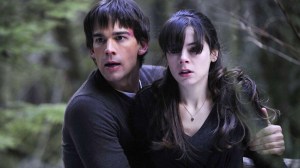Netflix has re-opened a debate on what Dungeons & Dragons class Geralt would be, giving fans the choice between two wrong answers. The Witcher and Dungeons & Dragons are the two hottest brands in fantasy entertainment right now, so that means that companies will attempt to cross the brands in some sort of meaningful way. Recently, a Netflix Twitter account decided to make the controversial claim that Geralt of Rivia would be a Cleric in Dungeons & Dragons as opposed to a Rogue. This, of course, created a mix of social media engagement by those who like to engage in pedantry and eyebrow raises by those who feel that a character as complex and unique as Geralt shouldn’t be placed into a box based on entirely separate lore and magic system.
Videos by ComicBook.com
It should be enough to say that Geralt is a Witcher, a well-known occupation (or class, as the tabletop gamers call it) in his world. But, if we were forced to determine what a Witcher’s equivalent would be in the Forgotten Realms or one of the other campaign settings of Dungeons & Dragons Fifth Edition, we would likely argue that he’s closer to a Ranger than a Cleric or a Rogue. Rangers can use a variety of fighting styles, specialize in natural exploration, and have limited magical abilities. At higher levels, they have preternatural senses that allow them to fight foes that other creatures can’t see or handle. Geralt’s beloved horse Roach (who is actually a series of horses all named Roach) would likely classify as an animal companion. We might even argue that Geralt could be considered a “Monster Slayer,” a subclass of Ranger that would give him the ability to identify a creature’s weakness, grant them supernatural defenses, and deal additional damage when attacked by specific quarries.
While not an official class, Geralt would also probably qualify as a Blood Hunter, a class created by Critical Role DM Matt Mercer that is heavily inspired by The Witcher and features mutant enhancements and alchemical buffs. Other D&D subclasses that Geralt would possibly be framed as include a Fighter (likely an Eldritch Knight or a Psi Knight) or perhaps an Alchemist (although the latter would work better using the Pathfinder definition as opposed to the D&D version.)
The painful thing in all of this is that Geralt is canonically an atheist, and Clerics are characters who channel the divinity of the gods. While many D&D players have skirted around the “warrior priest” archetype popularly used when creating a Cleric’s backstory, there’s not a single drop of evidence to suggest that Geralt’s minor magical abilities are derived from anything other than a lifetime of painful genetic modifications. Geralt certainly doesn’t seem to draw magical strength from any sort of belief structure; his magical abilities are a painful byproduct of the path he was put on as a child. Additionally, Geralt’s magic is more akin to the “half-casting” abilities seen in certain D&D classes rather than the “full caster” classes that would sync up better with a character like Yennefer.
The reality is that Geralt, coming from a fully-fleshed out fantasy world more inspired by the works of Michael Moorcock and European fables, is a poor fit for any Dungeons & Dragons class. But, he certainly can’t be called a Cleric, as that’s insulting to both Geralt’s beliefs and a fundamental misunderstanding of how that class works.









